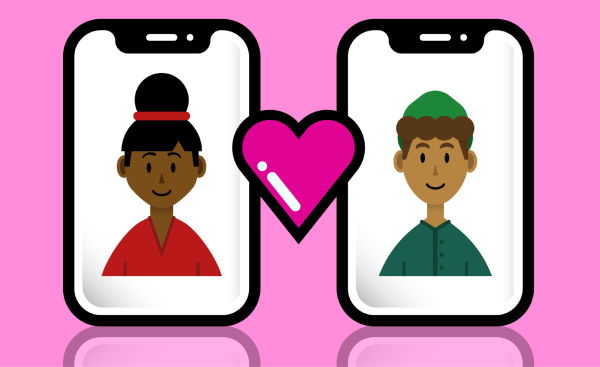Self Care Sunday: Dealing with the Stress of Finals
November 17, 2019
As the last few weeks of term roll around, many of us are looking for ways that we can better deal psychologically with the stress of upcoming finals and presentations. I would like to share my two favorite methods for this, meditation and exercise, both of which have allowed me to relax and prepare myself for my finals.
Meditation
For those of us that aren’t Buddhist monks, the practice of meditation might seem a little esoteric. As Westerners, we are taught to face our problems by confronting them directly, by getting up in their face and defeating them in battle. This method of dealing with our problems, however, often has negative side effects, including stress, anxiety, and burnout. Of course, we should never run away from what is stressing us out, but it is good to at least take a step back, re frame the situation, and recenter yourself. Meditation offers an opportunity to recognize that although the challenges we face have real consequences (our grade depends on our performance, for example), much of the suffering and anxiety associated with these challenges is unnecessary.
But how do you meditate? There are many different varieties of meditation, but the most common stresses mindfulness: the act of being aware of how you are feeling and what you are thinking. By sitting quietly and focusing on the thoughts that go through your mind, you may notice that the anxiety you’re feeling is derived from a fixation on the future and from negative thinking, “What if I fail this test?”, “My future goals depend on this presentation,” and so on. Meditation in this way is simply calmly being aware of the thoughts and feelings that inescapably drive your life, which is the first step in working to change them.
I personally credit a daily meditation practice (although I miss some days) for reducing the stress of a high workload (including barrages of tests and presentations), reducing my levels of anxiety, and raising my self-esteem. How can something as simple as focusing on the thoughts drifting through your mind have these benefits? Partly because our emotional health, our level of well-being, stress, or whatever else, is dependent on what we are thinking. How we frame our problems, and how we frame our ability to handle these problems, is directly connected with how we feel. Being mindful of our thoughts allows us to notice negative, stressful thoughts and replace them with more constructive, positive, and hopeful framings. In this way, I personally have benefited from becoming aware of my thought processes and re framing them. I rarely feel anxious about tests and presentations if I keep up a consistent meditation routine.
There are many great ways of getting into meditation that don’t involve climbing Mary’s Peak in a robe, chanting, or burning incense. For one, Counseling & Psychological Services in Snell Hall offers guided meditation sessions for students on campus every Thursday from 3-4 p.m. Feel free to just stop in for a few minutes and get an idea of what it’s all about! You can also subscribe to the weekly CAPS Mindful@OSU newsletter if you would like helpful tips and articles on meditation and other methods for dealing with stress and anxiety.
According to Healthline, there are also several popular and accessible apps available on the App Store and Google Play that specialize in introducing beginners to the various forms and techniques of meditation. The most popular ones are Headspace, Calm, 10% Happier, and Insight Timer, and all, in addition to introductions to meditation, feature a wide range of lessons on topics such as reducing stress, seeing life’s problems through a positive lens, and increasing self-confidence.
Exercise
Exercise is always a sure way to relieve stress. This is my personal go-to if I am feeling a sudden wave of anxiety: heading over to Dixon Rec Center, which is free for all students, and doing some cardio, lifting weights, or playing some sports. This is especially great to do with a good friend, which paired with the physical activity, can get your mind off of upcoming challenges and can release feel-good chemicals in your brain. According to Harvard Medical School, exercise can also help with information retention and critical thinking. The brains of people who exercise regularly are more developed in the areas responsible for thinking and memory, for instance. For those interested in performing well on the test or presentation and not just feeling better about facing it, exercise has the benefit of being able to improve your brain function (and a well-oiled brain typically comes very useful during exams!).
Exercise also improves sleep quality, confidence, and subjective well-being, things very important for mental clarity and emotional well-being. Arman Askari Zadeh, a Third-Year student at OSU studying computer science, exercises in Dixon regularly and finds that the sense of accomplishment and confidence he gets from strength training translates to other parts of his life in the form of a growth mindset: “for me, working out is not just about gaining muscle. . . . For me, it’s about knowing . . . that you can get better, that you can always get one step closer to what you want to get in life. . . . When you see that you are making progress in your fitness goals, you definitely get motivated, motivated to work harder and harder every single day.”
Samuel Fu, a Fourth-Year OSU student studying kinesiology who recently obtained his Personal Trainers certificate with ACE, credits exercise for routinely improving his mood and giving him the motivation to face the obstacles of the day: “. . . I low key gain a sense of accomplishment for even getting my ass to the gym, and I ride that high through the struggles of the day, like preparing for a test.” According to Fu, “Exercise helps with sleep because you end up expending more energy throughout the day.” Exercise also “uses the same parts of the brain that we use to problem-solve and do our work, so it’s a really good way to switch things up and take a break from studying while keeping our brain working.”
So if you are feeling anxiety creeping up, trying out either meditation or a regular exercise routine has my seal of approval. There is always opportunity to re frame the situation and to ensure that your mind and body are able to successfully study and be prepared for the tests or presentations when they come.



















